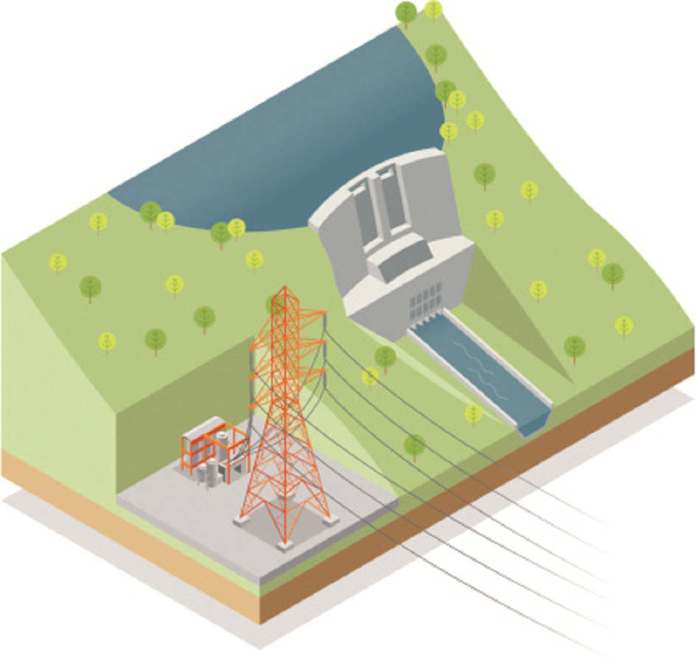
Stakeholders have emphasized the need to introduce the proposed electricity bill to safeguard private sector investment. They expressed these concerns during an interaction program on “Proposed Electricity Bill 2023 and Protection of Investment,” organized by the Nepal Infrastructure Journalists Society on Wednesday.
Speaking at the event, former Energy Secretary of the Government of Nepal, Anup Kumar Upadhyay, stated that the existing Electricity Act 1993 is more private sector-friendly than the Electricity Bill 2023, currently under parliamentary consideration. “The current law has facilitated electricity sector development by offering various incentives to the private sector,” he said. “It already provides solutions to existing problems—the issue lies in its implementation.”
Addressing competition in the electricity sector, Ram Prasad Dhital, Chairman of the Electricity Regulatory Commission, stressed the need for well-defined priority criteria. He also emphasized the importance of ensuring non-discriminatory open access for private sector participation.
Similarly, Jivach Mandal, Joint Secretary at the Ministry of Energy, Water Resources, and Irrigation, highlighted the necessity of policy measures to protect private sector investments. He noted that Nepal is still not entirely free from load shedding and that achieving energy security requires 30 percent spinning electricity to be reabsorbed. Given the significant contributions of the private sector to Nepal’s energy landscape, he underscored that safeguarding private investments is crucial for sustainable growth.
At the program, former Governor of Nepal Rastra Bank, Dipendra Bahadur Chhetri, emphasized that the proposed electricity bill should also address the impact of climate change on Nepal’s hydropower projects.
Economist Gobind Nepal stressed the need to develop high-capacity hydropower projects and ensure they generate returns for Nepal’s 6.5 million investors.
Similarly, former Executive Director of Nepal Rastra Bank, Nar Bahadur Thapa, suggested increasing the banking sector’s investment limit in energy projects from 10 percent to 15 percent. He believes this change would enhance investment in the government’s energy development initiatives.
Former CEO of the Investment Board, Radhesh Pant, pointed out that while private developers have constructed hydropower projects designed to last 100 to 150 years, the government should legislate with the understanding that such projects are state infrastructure. “Hydropower projects are not merely private ventures; they should be considered national infrastructure,” he stated.
Ganesh Karki, Chairman of the Independent Power Producers’ Association of Nepal (IPPAN), warned that if the Electricity Bill 2024, currently under parliamentary review, is passed in its existing form, it will discourage private sector investment. “The private sector is capable of meeting the government’s target of producing 28,500 MW of electricity in 10 years. However, if the bill is passed as it is, investment in this sector will decline,” he cautioned.
At the event, Bhishma Pandit, Upstream Operational Officer of the International Finance Corporation (IFC) Asia Infrastructure Team, presented a working paper, highlighting that the proposed law strengthens the monopoly of government bodies.
Vice President of IPPAN, Uttam Vlon Lama, also presented a working paper, advocating for non-discriminatory open market access for the domestic private sector. He argued that while the government has set an ambitious target of 28,500 MW of electricity production in the next decade, new restrictive laws should not hinder private sector involvement.
Prakash Dulal, Deputy Secretary-General of IPPAN, criticized the government for failing to provide equal incentives and concessions to domestic private investors compared to foreign investors. He warned that if the proposed bill is enacted, it could create challenges not only for the energy sector but also for cooperatives.
Responding to concerns raised by experts and private sector energy entrepreneurs, Deepak Bahadur Singh, Chairman of the Infrastructure Development Committee under the House of Representatives, assured that the Electricity Bill 2023is still under discussion. “We are consulting various stakeholders at different stages to ensure that the bill is acceptable to the private sector,” he said.
During the program, committee members urged lawmakers to refrain from unnecessary debate over the pending bill. They assured that efforts are being made to draft the bill prudently, ensuring balanced provisions that support both the government and private sector stakeholders.
Source: Kantipur










